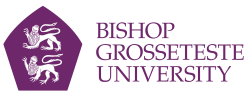Performativity, guilty knowledge, and ethnographic intervention
Puttick, S. (2015) Performativity, guilty knowledge, and ethnographic intervention. Ethnography and Education, 12 (1). pp. 49-63. ISSN 1745-7823
|
Text
Puttick_PerformativityGuiltyKnowledge_2017.pdf - Accepted Version Download (830kB) | Preview |
Abstract
This paper applies Dennis’ [(2009). “What does it Mean when an Ethnographer Intervenes?” Ethnography and Education 4 (2): 131–146] modes of ethnographic intervention to a fieldwork experience of an observed secondary school lesson in England. Ethnographic research raises numerous ethical dilemmas, in the face of which ‘intervention’ is unavoidable. The observed lesson – in which a teacher was judged as ‘Requiring Improvement’ – left me with ‘guilty knowledge’. The performative nature of observed lessons constructs highly charged events. Drawing particular attention to the power imbalances between observer and observed, ethical deliberation about the event is considered, and subsequent ‘interpersonal’ and ‘administrative’ intervention is presented. As ethnographers, it is impossible to avoid intervening in some sense. I conclude that performativity raises ethical issues which may demand particular responses from ethnographic researchers, whose empathetic intention places them well to explore – and critically engage with – the workings and effects of performativity.
| Item Type: | Article |
|---|---|
| Additional Information: | Published by Taylor & Francis. All rights reserved. Reproduced in accordance with the publisher's self-archiving policy. |
| Divisions: | School of Teacher Development |
| Depositing User: | Dr Steven Puttick |
| Date Deposited: | 15 Jun 2016 16:29 |
| Last Modified: | 10 Sep 2019 15:57 |
| URI: | https://bgro.repository.guildhe.ac.uk/id/eprint/67 |
Actions (login required)
 |
Edit Item |

